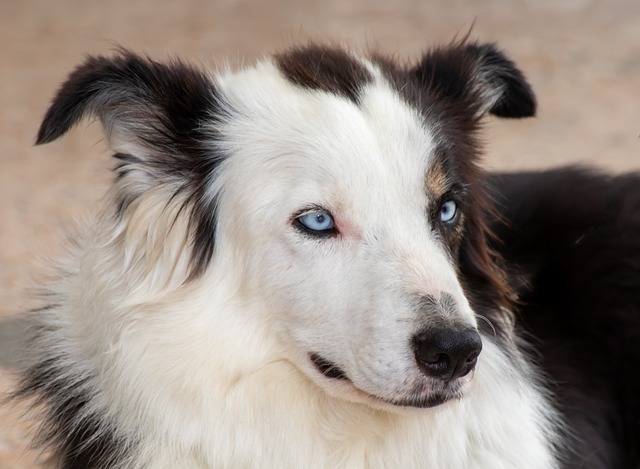
Is standing for a long time harmful to a dog's body
When we see dogs performing on their hind legs in circuses or street entertainers training dogs to stand for prolonged periods to beg,
Among the digestive system diseases of dogs, gastritis and pancreatitis are relatively common but easily confused. Accurately distinguishing between these two diseases is not only the responsibility of professional veterinarians, but also crucial for owners who spend every day with dogs to understand the difference. Because this is not only related to whether the dog can be given the right treatment in time, but also carries our deep love and concern for our fur children. Every detail is to protect their health.
From the perspective of the cause of the disease, there is a clear difference between gastritis and pancreatitis. The occurrence of dog gastritis is mostly closely related to improper diet. Eating spoiled and irritating food, suddenly changing dog food, eating too fast and too much, may irritate the gastric mucosa and cause inflammation. In addition, infection with bacteria and viruses, accidental ingestion of foreign objects leading to gastric mucosal damage, and side effects of certain drugs can also induce gastritis. The cause of pancreatitis is more complicated, usually related to high-fat diet, obesity, endocrine disorders (such as diabetes), the use of certain drugs, genetic factors, etc. Feeding dogs greasy food for a long time, like human leftovers, will cause the pancreas to over-secrete digestive enzymes. When these enzymes are activated prematurely in the pancreas, they will begin to digest their own tissues, causing pancreatitis. These different causes also provide important clues for our initial diagnosis of the disease.

In terms of symptoms, gastritis and pancreatitis have both similarities and key differences. Both can cause dogs to vomit and have symptoms of loss of appetite. Dogs with gastritis vomit relatively frequently. In the early stage, they may vomit undigested food, which will gradually turn into white foamy mucus, and in severe cases, it may even contain blood or coffee-colored substances. Due to stomach discomfort, the dog's appetite will decrease significantly, and he will not be interested in his favorite food, and his mental state will become sluggish. The vomiting caused by pancreatitis is also severe, but it is often more stubborn, and the vomitus is mostly yellow-green bile-like substances. In addition to loss of appetite, sick dogs will also show obvious abdominal pain symptoms. They often arch their backs and curl up their bodies to try to relieve the pain. When the abdomen is touched, the dog will resist, dodge, or even cry out in pain. In addition, pancreatitis may also cause fever, dehydration, jaundice and other symptoms in dogs. The disease progresses rapidly and can be life-threatening in severe cases. These subtle but critical symptom differences require careful observation by the owner to detect abnormalities in the dog's body in time.
When a dog is suspected of having gastritis or pancreatitis, professional diagnosis is the key to determining the condition. Veterinarians usually conduct detailed interviews to understand the dog's diet, disease process, symptoms, and other information, and combine comprehensive physical examinations to make a preliminary judgment on the condition. In order to further clarify the diagnosis, a series of laboratory tests and imaging tests will also be performed. For gastritis, a routine blood test may show an elevated white blood cell count, indicating inflammation; a gastroscopy can directly observe the damage to the gastric mucosa. In the diagnosis of pancreatitis, in serum biochemical tests, pancreatic enzyme indicators such as amylase and lipase will increase significantly, which is an important basis for judging pancreatitis; abdominal ultrasound examination can intuitively see the shape and size of the pancreas and whether there are lesions such as swelling and exudation. These professional examination methods are like precise keys that help us open the door to diagnosing diseases.
As pet owners, in daily life, careful observation of dogs is the first line of defense for discovering diseases. We must always pay attention to the dog's diet, mental state and defecation. Once abnormalities are found, do not be lucky, and take the dog to the pet hospital for treatment in time. In the process of waiting for the diagnosis results, the anxiety and uneasiness in the heart are difficult to express, but we must believe in the power of professionalism and actively cooperate with the veterinarian's examination and treatment. Whether it is gastritis or pancreatitis, early diagnosis and treatment are crucial, which directly affects the dog's chance of recovery and prognosis.
Distinguishing between gastritis and pancreatitis in dogs is a race against time and a battle with the disease. Every subtle symptom observation and every professional diagnostic examination embodies our care and responsibility for dogs. Seeing our once lively and lovely furry friends being tortured by diseases, our hearts ache. But as long as we stay calm and face it with professional knowledge and warm love, we can definitely help dogs overcome the disease and regain their former vitality and happiness.

When we see dogs performing on their hind legs in circuses or street entertainers training dogs to stand for prolonged periods to beg,

When we prepare to greet the dog's warm greeting as usual, we find that the once bright and clear eyes have become red and swollen, and the dog keeps scratching with its claws, with a look of discomfort and helplessness in its eyes.

When you notice your beloved dog constantly scratching, biting itself, or see its once-smooth coat becoming red, swollen,

When you see your beloved dog constantly scratching or notice suspicious black specks in its smooth fur, it’s natural to feel concerned. Parasites are a common health issue for dogs,

When we look into the eyes of dogs, the originally bright and clear eyes suddenly show distressing red bloodshot, and even become swollen and secrete more.

At the moment when the door closes, there comes the heart wrenching barking of dogs inside the house, or when they come home and see a chewed sofa and scattered slippers,